In part one of a two-part blog, the charter captain and swamp stalker talks bowhunting close calls and using his social platform to push Everglades conservation
If you’re Ryan Nitz, South Florida hunting is all about risk taking. Along with a little sacrifice, and even more suffering.
After bushwhacking through the subtropical forest, the Florida native once swiped a massive, fuzzy, orange-striped puss caterpillar from the back of his neck. Almost immediately his vision blurred and profuse drool dripped from his slack mouth as he stumbled back to his truck. That injury was just to his neck. His feet take bigger risks.
That’s because Nitz often opts to hunt barefoot. Not in the cool, open woodlands or grassy meadows of middle America, but in the snake and spider-filled swamps of the Everglades. While wading northern Everglades haunts in search of goonie bucks, his feet find a lot more.
“I’ve literally stepped on a water moccasin,” Nitz says.
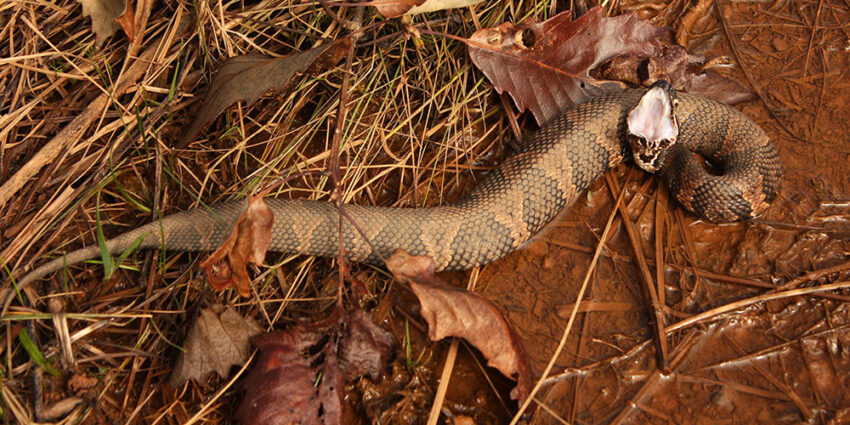
He trod on the squirming snake while walk-and-stalk hunting for deer, jumping away before it could strike because by sheer luck he’d stepped on the serpent’s neck. He’s also stumbled into an alligator while heading out of a cypress dome in fading twilight. He was marching toward his swamp buggy pickup spot, bow in hand, not paying attention as he tried to get a cell phone signal. He ran smack into a massive gator, luckily facing away from him.
“When I hit the tail of him, he did a one-eighty and snapped his jaws,” he says. “I’ll never forget the sound it made, like a 12-gauge shotgun going off. I could actually feel the percussion.”
While he says those reptile encounters were scary, they don’t compare to his worst barefoot experience: stepping on a scorpion. “The only way to describe it is if you stepped on a knife. I couldn’t put shoes on for like nine days.”
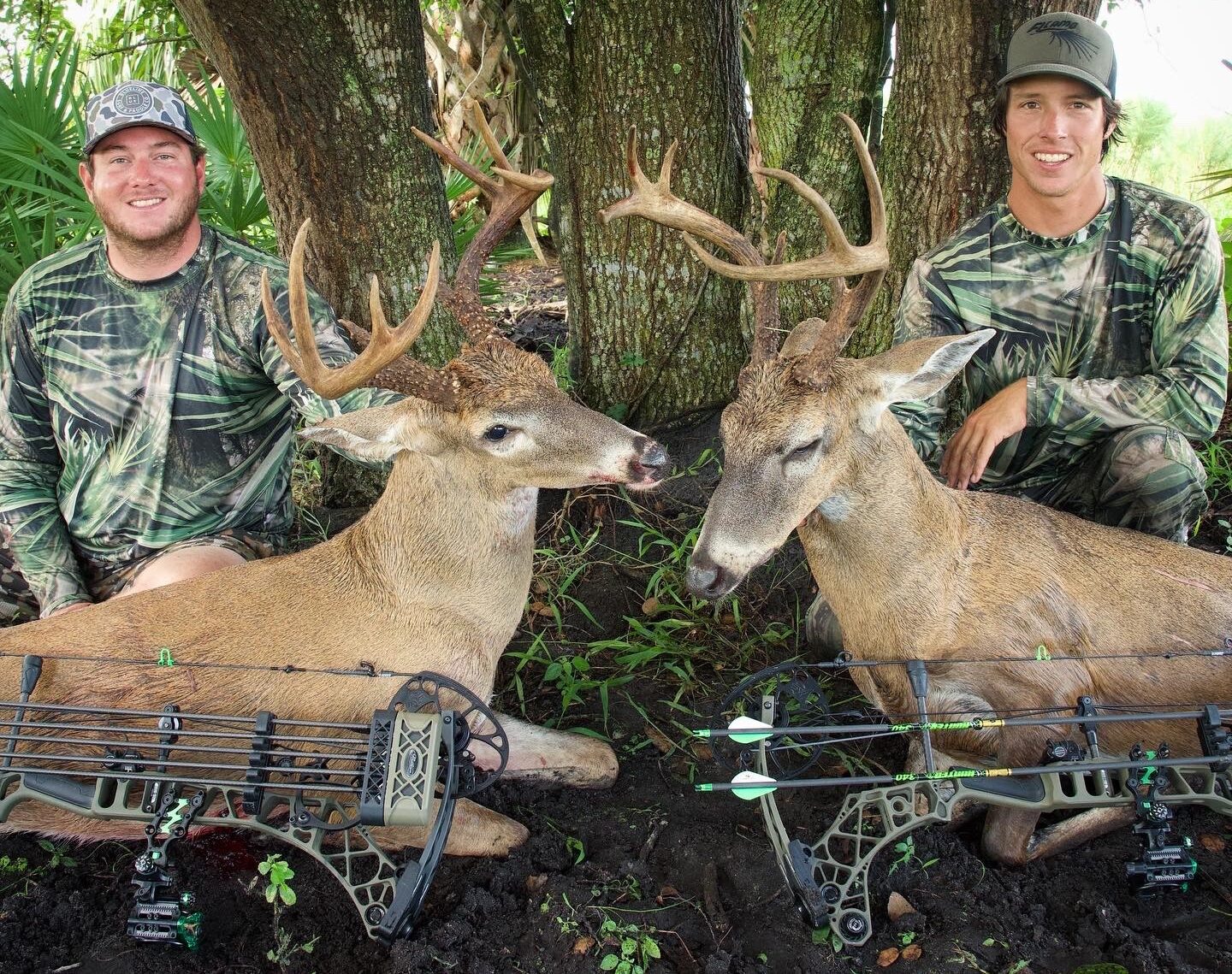
Risks Are Worth the Rewards
Why does Nitz, nicknamed by peers the “Barefoot Bandit,” risk exposing his feet for hunting? Because where he lives, the best place to find 10-point whitetail bucks is in inundated cypress swamps, where wearing boots means overheating, having soggy socks inside sunken boots, and making lots of noise. He also barefoot hunts, for deer as well as hogs and turkeys, for better maneuverability and stealth. He acknowledges the risk. But he’s onto something. Because this story is not just about his feet, but also his feats.
Feats garnered due to his early sporting success – and not just personally bagging the biggest South Florida bucks. Feats like the rush of getting to guide out-of-state hunters into pristine Florida uplands to call in Osceola turkeys. Or like changing his career from pest control specialist to one of the more highly sought after (and youngest) snook fishing guides in South Florida. And like being able to lend his experience to offer fishing and hunting trips that leave positive lifelong memories with those who hire him.
“I really like showing people what I’ve learned over the last 20 years,” he says. “And my clients are sometimes almost in tears because they had such a memorable day in the field with a family member or friend.”
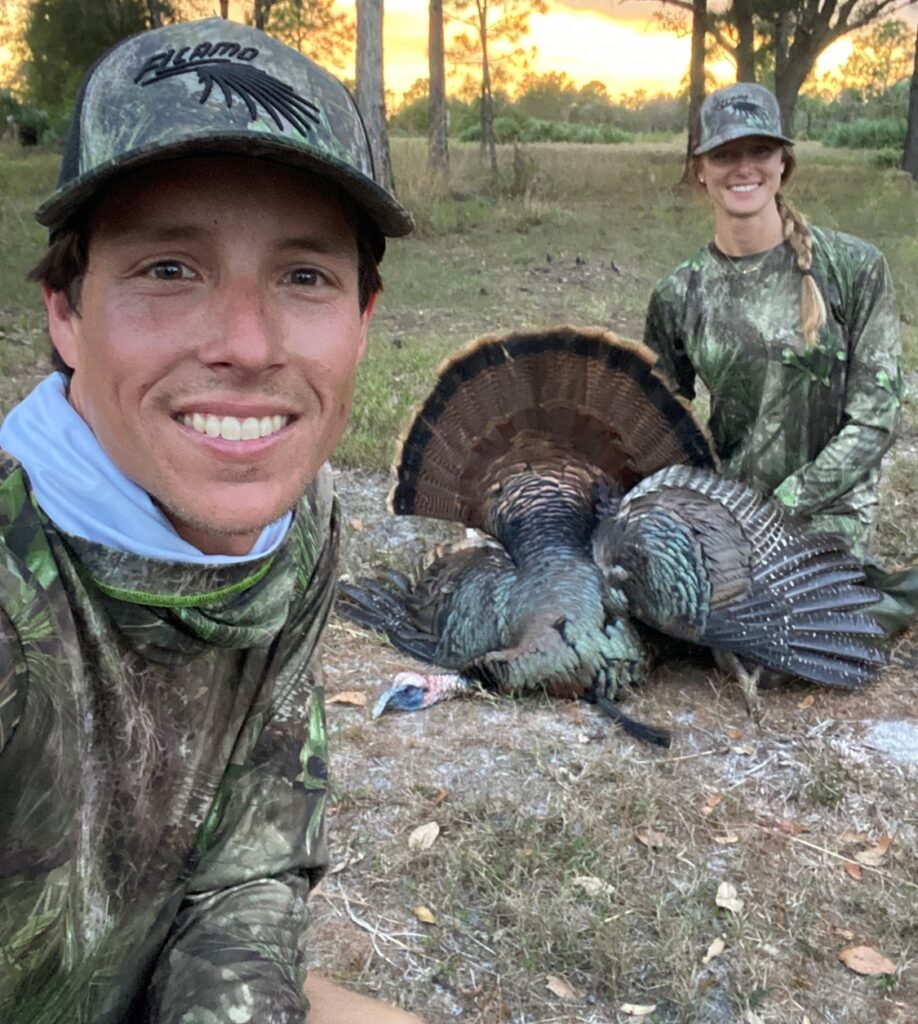
Social Media Sensation
Nitz has spent his entire 32 years in coastal southeast Florida, in and near the northern reaches of the Everglades ecosystem. From turkey hunts in north Florida to whitetails in the Glades, he’s had hunting success throughout the state. But it was snook fishing in his backyard that really launched his business, Ryan Nitz Charters.
Nitz became an expert snook fisherman near his Jupiter home after spending every afternoon in high school wading along mangroves and under bridges in what he calls “the snook capital of North America.” Until seven years ago, it was only for fun. Back when he was working in pest control to earn a living. But as a wildlife photographer, he started taking pictures and filming experiences using the GoPro on his head. His girlfriend at the time insisted he set up social media accounts and post his unique photos from the field, which he’d resisted because he thought people often use these platforms for all the wrong reasons. But he gave in and started posting the snook shots online.
His Instagram following blew up.
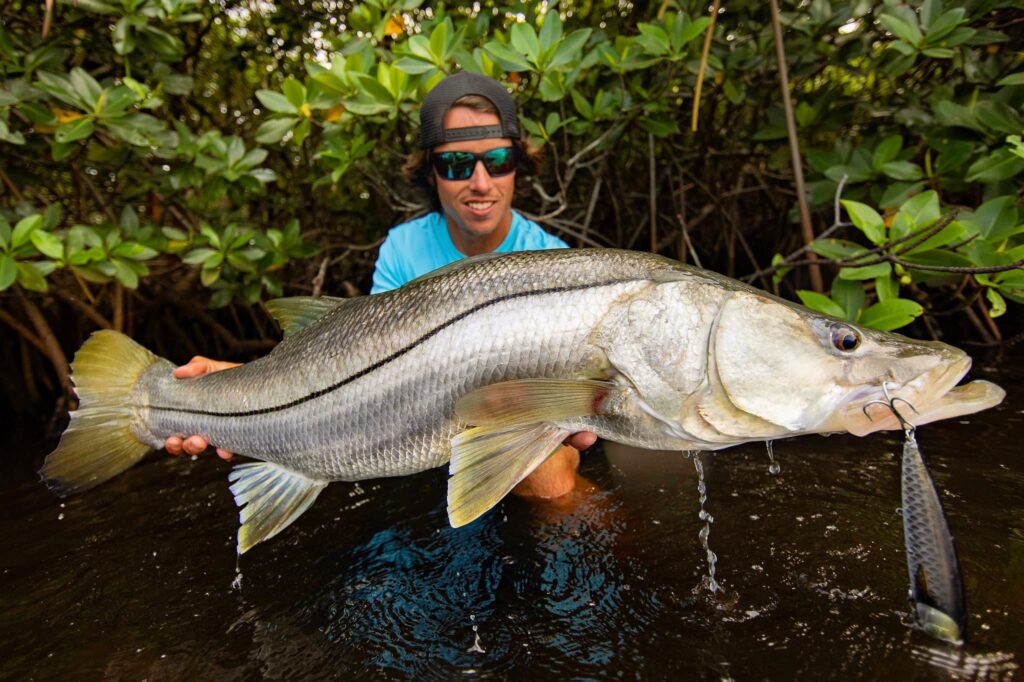
Television shows began to find him through his social media accounts, as did a sudden rush of people willing to be clients. He suddenly realized he could make a living out of doing what he loved. So he went and earned his captain’s license, bought a better boat, and stopped doing pest control. The rest is history.
“Now I’ve made myself known for the biggest snook you can catch.”
Over time Nitz’s Instagram account has literally become his business. It also lets him showcase the deer and gobblers he still stalks for fun, and which ultimately led to him guiding hunters into some to the best Osceola turkey habitat in the state.
He says that much of the land he leases for 20 to 30 turkey hunting clients each year is in the eastern part of the Everglades, in the “most pristine Florida woods you can find.” But recently he’s been running into more and more problems with development. One 300-acre property he leases for hunting, along with the property to the north, will soon be developed.
“There goes another piece of the woods we’ll never get back,” he laments. “And all that new infrastructure will block the flow of water from the Kissimmee [River] to Biscayne Bay.”
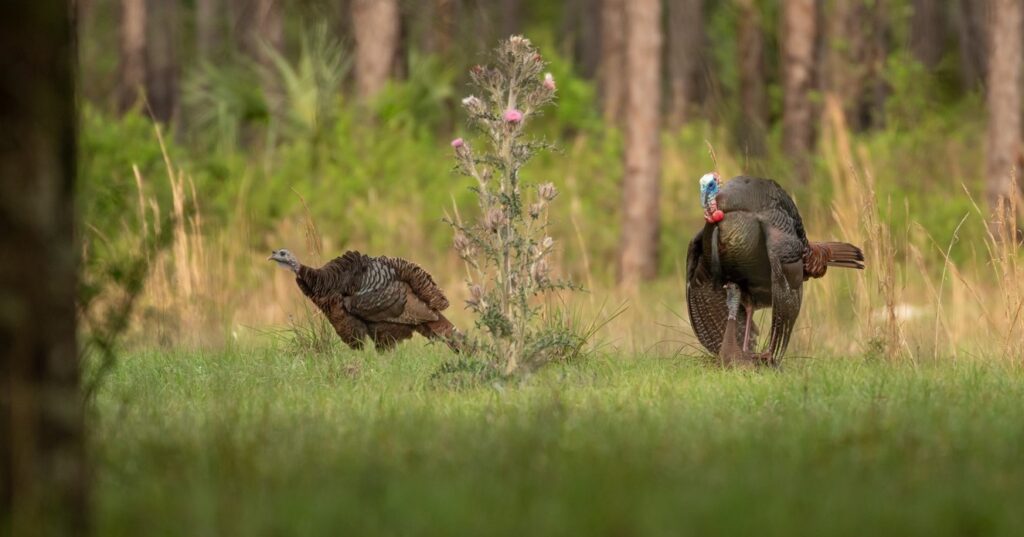
A Mouthpiece for Conservation
Like the sacrifices he makes for a successful hunt, Nitz has come to recognize that if we care about the natural world and conservation, we all have to be willing to give something up. Like turning down clients who want to fish an area that’s been hit too hard one season, regardless of regulations, or offering time or effort to support restoration efforts. He also wants to use the platform he’s created for conservation.
“Because I have that voice and following, I want to use it while I’m still young.”
Click here to support critical Everglades restoration projects –
Nitz readily admits that the South Florida areas he’s put in the spotlight have gotten more pressure due to his own social media popularity, but he intends to use this to his advantage now. With 50,000 followers, that means a lot of potential hunters and anglers to hopefully follow his lead on caring about conservation.
“Because I have that voice and following, I want to use it while I’m still young,” he says.
Nitz says the allure of Florida has always been the beautiful beaches, the inshore waterways, the vast swamps teeming with wildlife, and the resulting fishing and hunting. Without these, and the fish and wildlife they support, all Florida would have left are theme parks and new condos. He sees rampant development and the politics that enable it as the biggest problem Florida’s terrestrial ecosystems face, due to the flood of people moving to the state and too many decision-makers focused more on money than conservation.
“I wish somebody would have wild Florida at heart,” he says of the powers that be. “Right now is the time to act to have any chance of saving the state. And the Everglades are the heartbeat of Florida, so you have to start there. Once they’re gone, it’s all gone.”
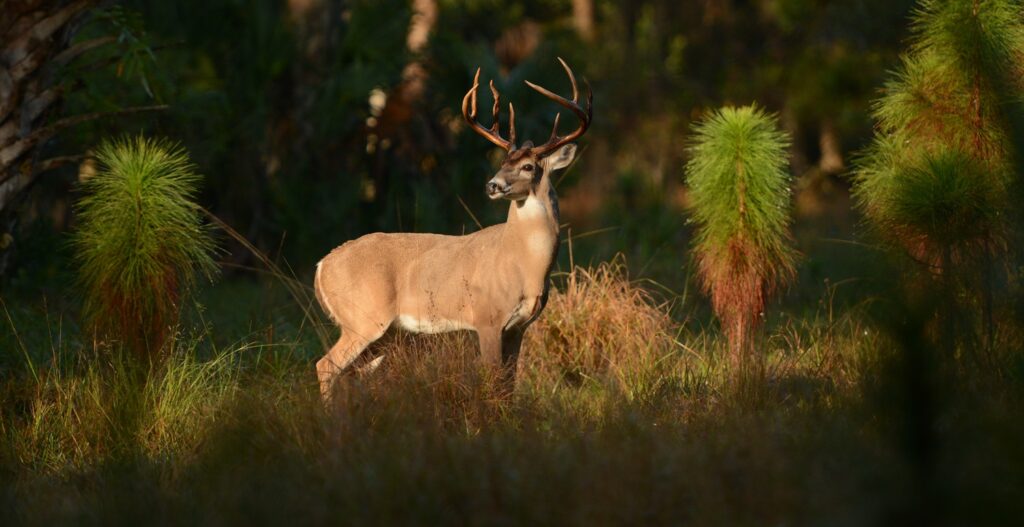
Solutions Lie in Teamwork, Targeted Funding
Nitz believes one of the main pathways to conservation is getting organizations and individual hunters and anglers rowing in the same direction.
“It’s a great thing to have organizations like TRCP, because there’s strength in numbers,” he says, referring to the nonprofit’s large following in the sporting community and its connections to partner groups. Like TRCP’s involvement with the Everglades Coalition, a group of almost 60 conservation and environmental organizations dedicated to restoration of the Greater Everglades Ecosystem. The coalition’s efforts to restore North America’s largest wetland largely revolve around getting the sporting and conservation communities to notice, and to care.
“That’s really our only chance,” Nitz says. “Get enough people involved and pissed off enough about it that they’ll do something.”
###
Read part 2 of our blog on Ryan Nitz, which focuses on his fishing charter business and risks to giant snook.
Click here to support Everglades conservation efforts by insisting that lawmakers continue to provide funding for critical infrastructure work.
Want to Hunt or Fish with Nitz?
He still does everything through his Instagram account, including respond to inquiries. If you don’t use social media, just type ‘Ryan Nitz’ into Google to find him and request to book a charter. He’ll get back to you between barefoot backwater hunts and midnight snook runs.
Photo credits: All images except of water moccasin courtesy of Ryan Nitz










